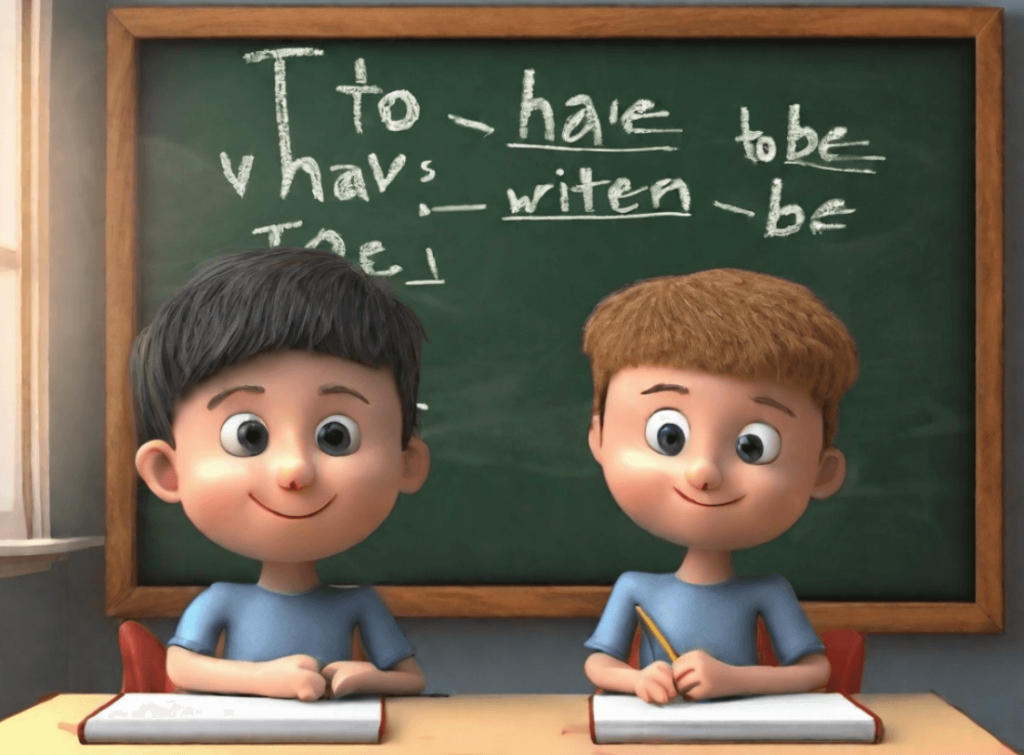In the English language, two of the most fundamental and commonly used verbs are ‘to be’ and ‘to have’. These verbs play a crucial role in constructing sentences and expressing different forms of actions. In this article, we will explore exercises focused on these two verbs, helping you practice and enhance your understanding of their usage.

The verb ‘To be’
Present tense
The present tense of the verb ‘to be’ is used to describe the current state or condition of a subject. It is often used to express identity, characteristics, or location. Let’s look at an example:
- She is a doctor.
Past tense
The past tense of ‘to be’ is used to express actions or states that occurred in the past. It indicates that something happened before the present moment. Here’s an example:
- They were at the party last night.
Future tense
The future tense of ‘to be’ is used to describe actions or states that will happen in the future. It is used to express plans, intentions, or predictions. Consider the following example:
- We will be traveling to Europe next month.
The verb ‘To have’
Present tense
The present tense of ‘to have’ is used to indicate possession or ownership of something. It is also used to express various states or conditions. Here’s an example:
- He has a new car.
Past tense
The past tense of ‘to have’ is used to describe possession or ownership of something in the past. It indicates that the action or state occurred before the present moment. Consider the following example:
- She had a great time at the concert.
Future tense
The future tense of ‘to have’ is used to express possession or ownership of something that will happen in the future. It indicates that the action or state will occur after the present moment. Here’s an example:
- They will have a party next weekend.
Exercises for ‘To be’
- Fill in the blanks with the correct form of ‘to be’ in the present tense:
- I am a student.
- You are my best friend.
- He is a talented musician.
- She is tired after a long day.
- We are excited about the trip.
- Rewrite the following sentences using the past tense of ‘to be’:
- She is happy. -> She was happy.
- They are at the park. -> They were at the park.
- We are friends. -> We were friends.
- Complete the sentences with the future tense of ‘to be’:
- I will be there on time.
- They will be busy tomorrow.
- She will be the next president.
Exercises for ‘To have’
- Fill in the blanks with the correct form of ‘to have’ in the present tense:
- He has a new job.
- They have two children.
- We have a meeting later.
- She has a beautiful garden.
- I have a headache.
- Rewrite the following sentences using the past tense of ‘to have’:
- She has a cat. -> She had a cat.
- They have a nice house. -> They had a nice house.
- We have a lot of work. -> We had a lot of work.
- Complete the sentences with the future tense of ‘to have’:
- I will have dinner with friends tomorrow.
- They will have a vacation next month.
- She will have a baby in a few weeks.
By practicing exercises focused on the verbs ‘to be’ and ‘to have’, you can improve your understanding and usage of these fundamental elements of the English language. Remember to pay attention to the different tenses and their specific applications. With consistent practice, you will become more confident in using these verbs accurately and effectively in your conversations and writing.
In addition, we have a platform: scitudy.com, which try to help every one learn English words and phrases in context. You can try it. It is totally free for now.
Leave a Reply